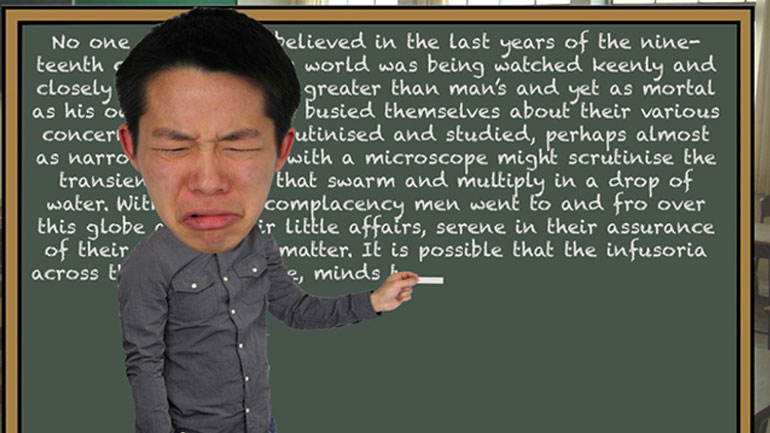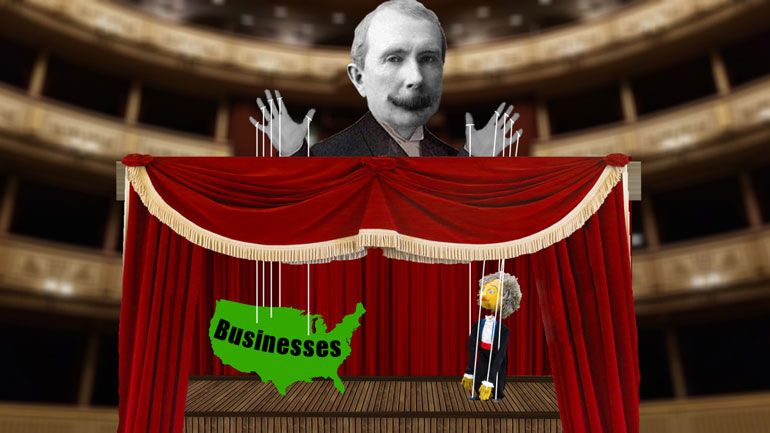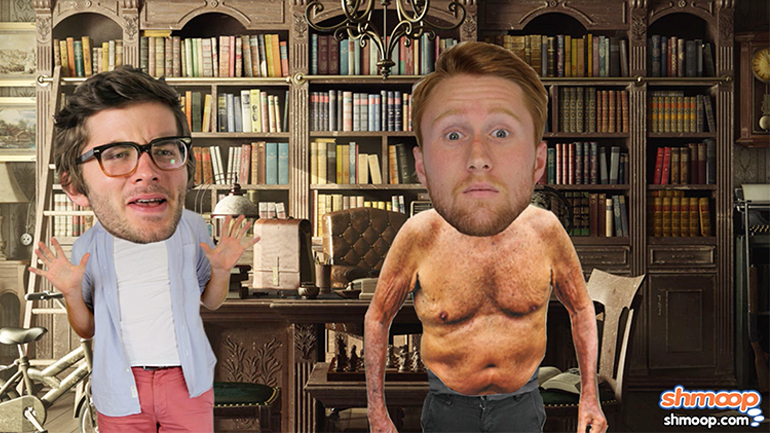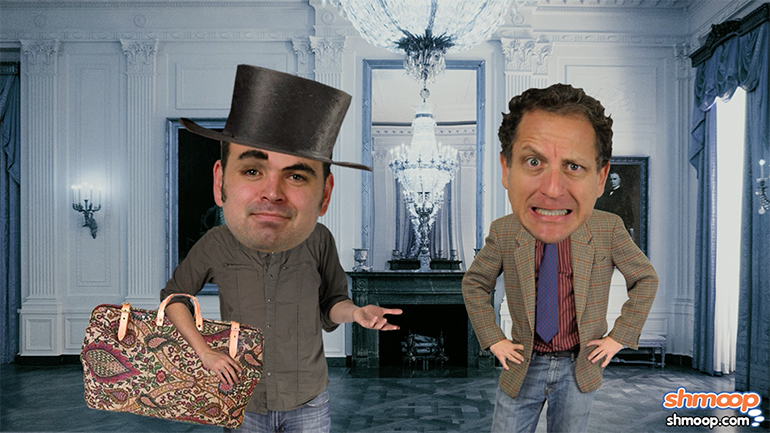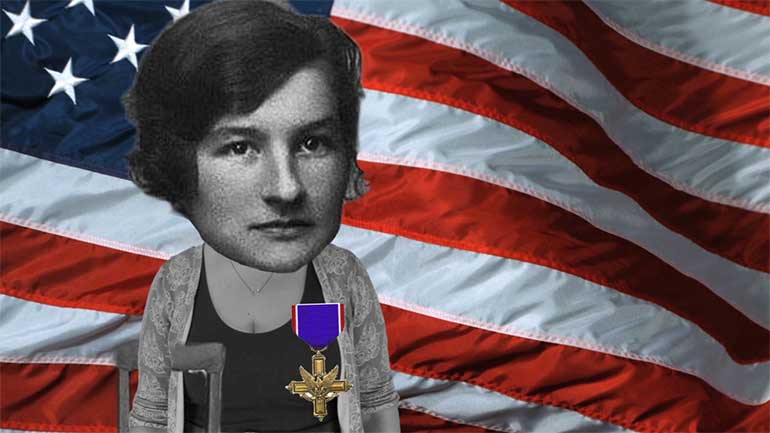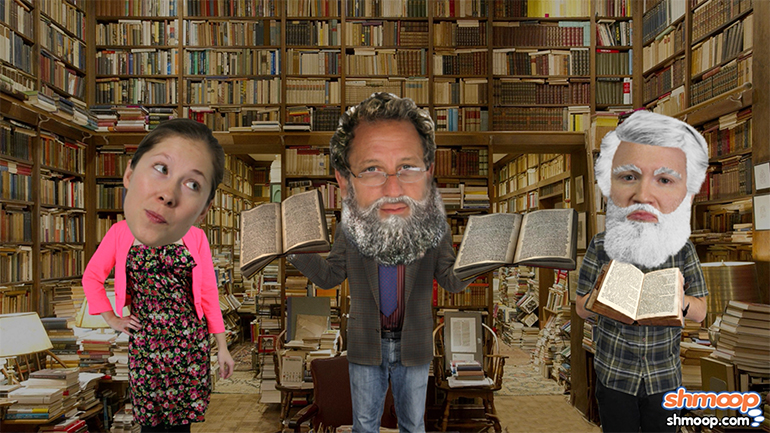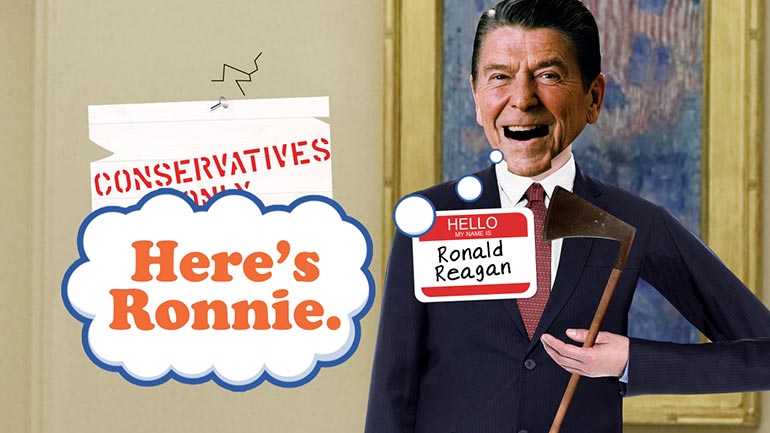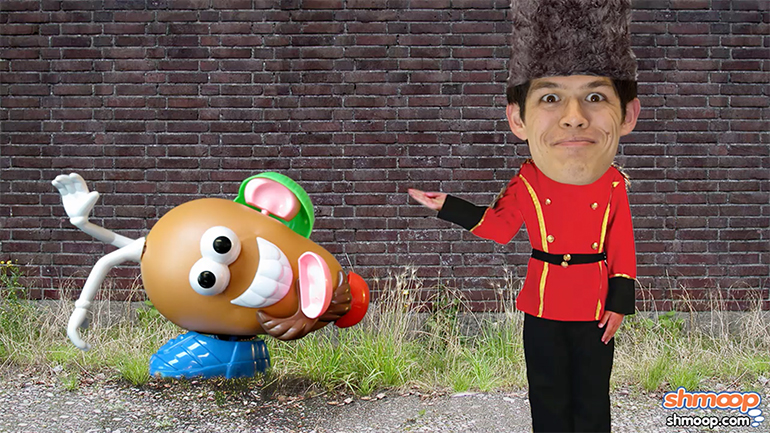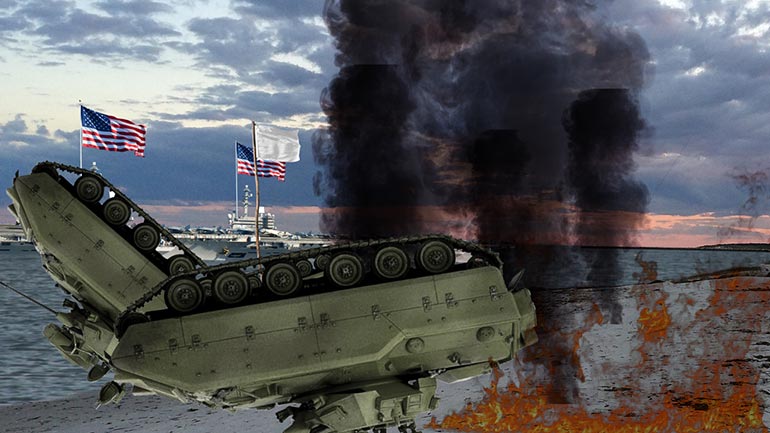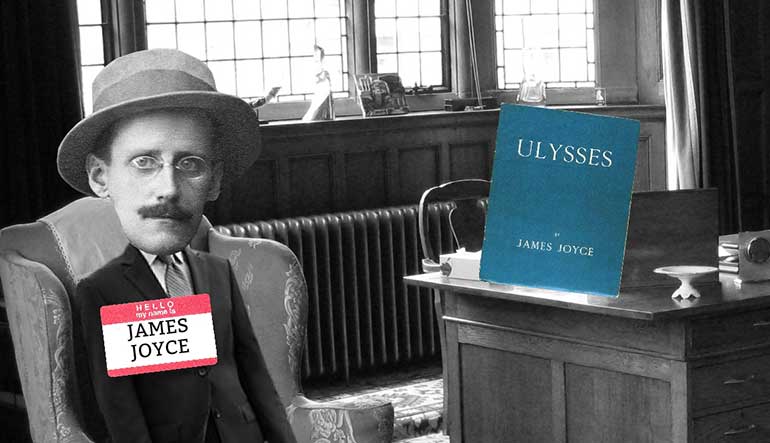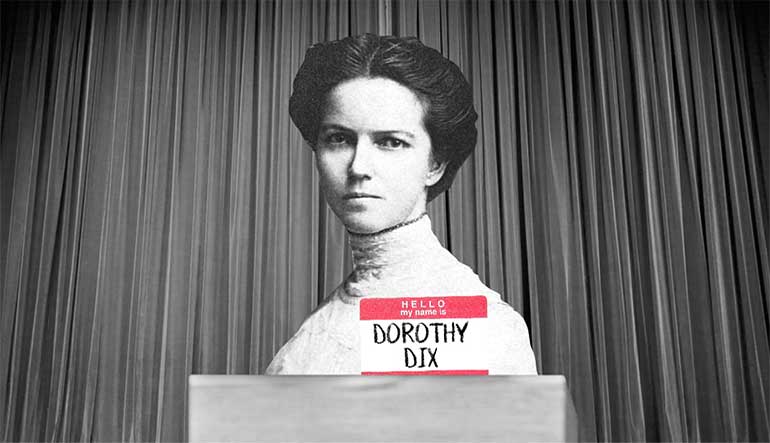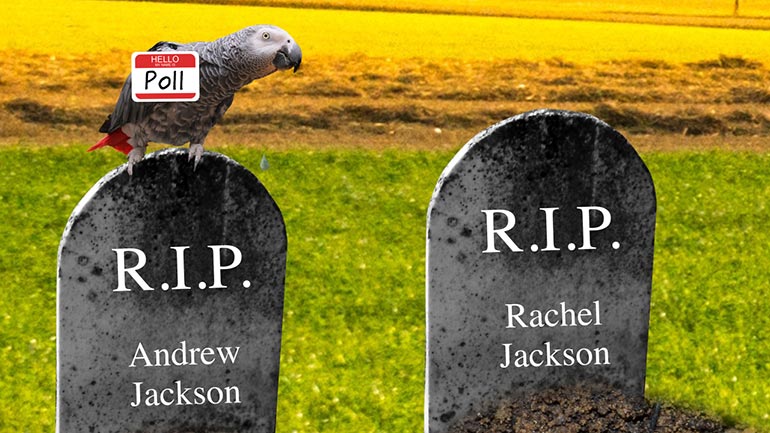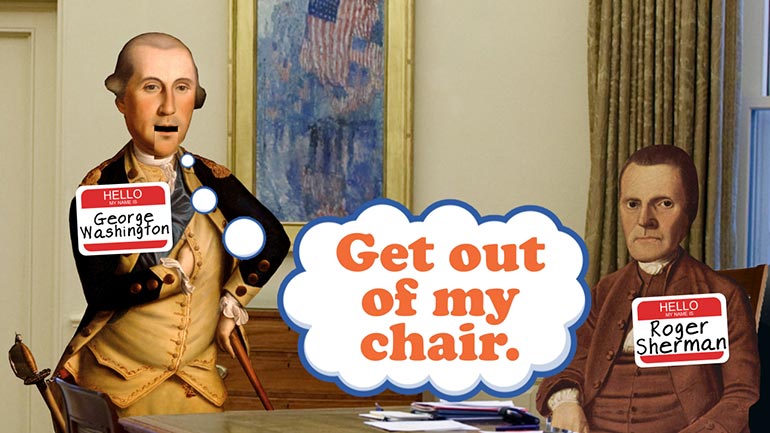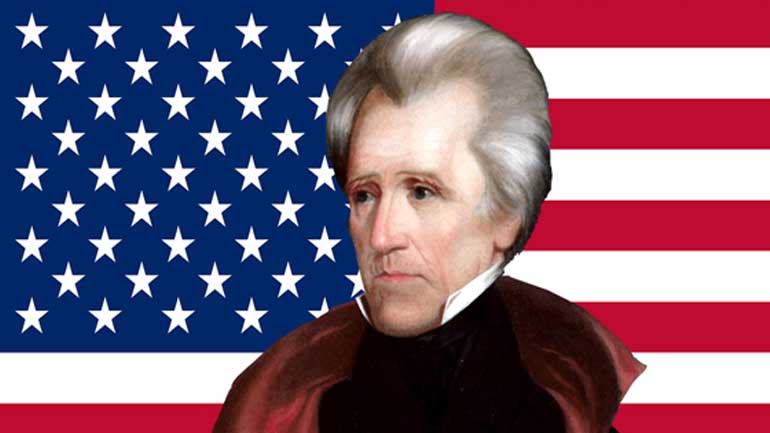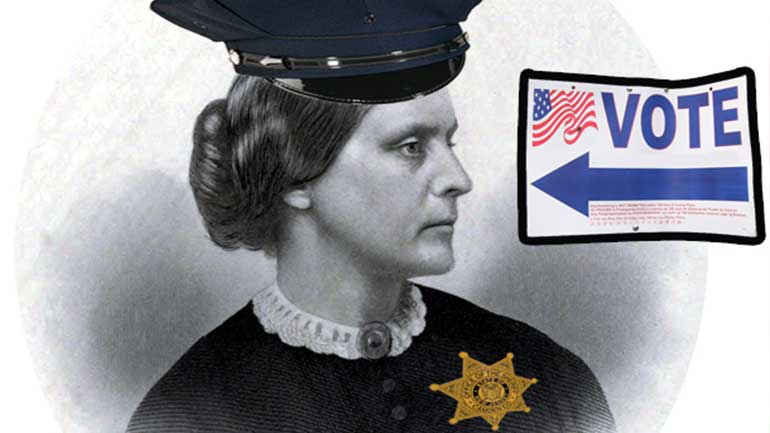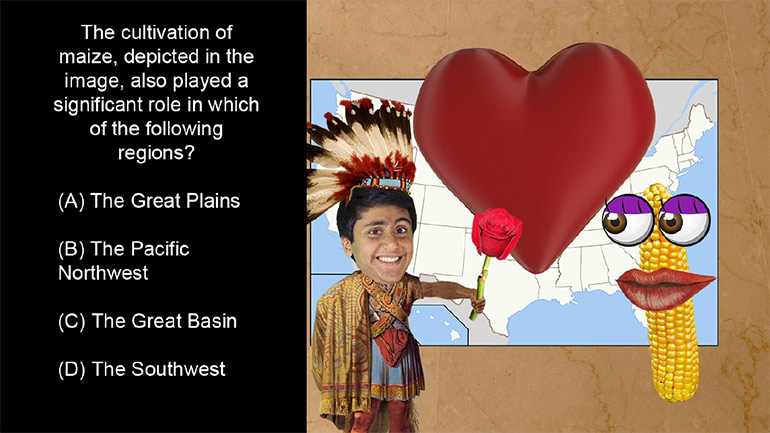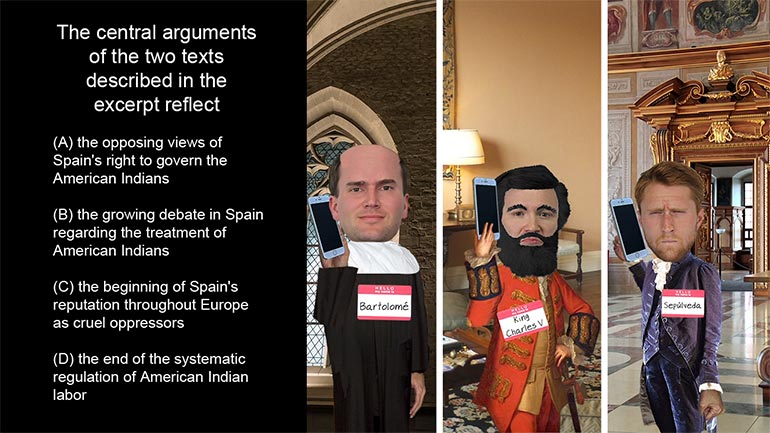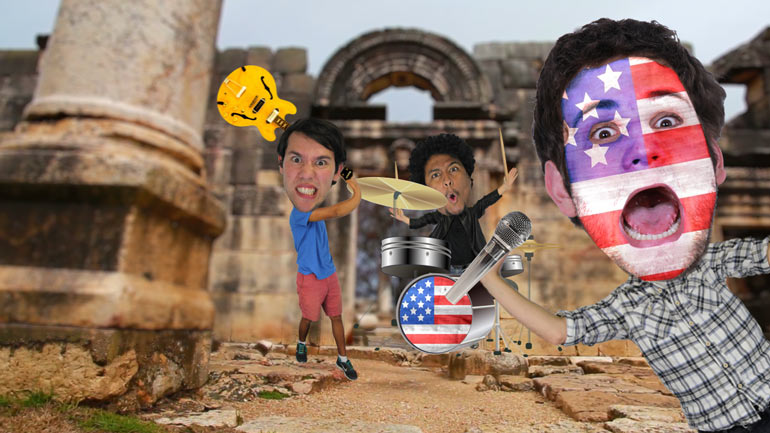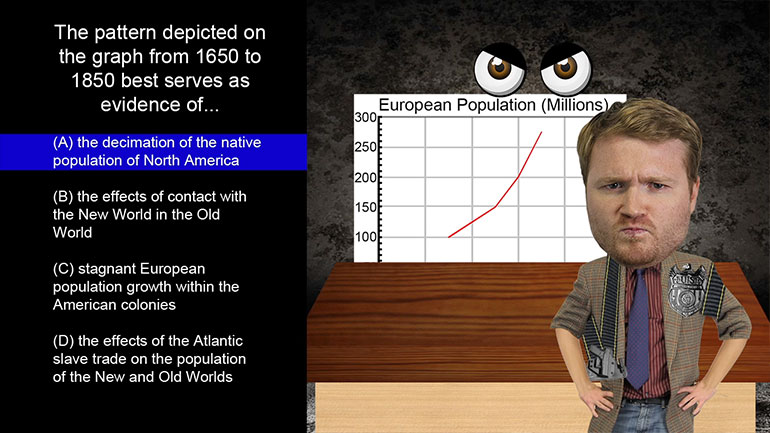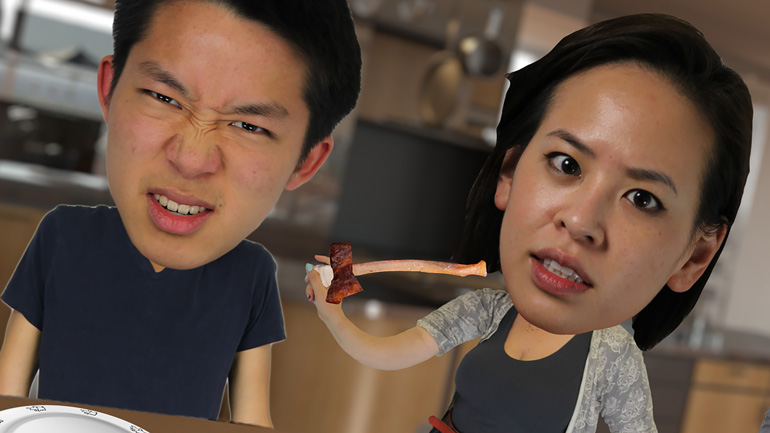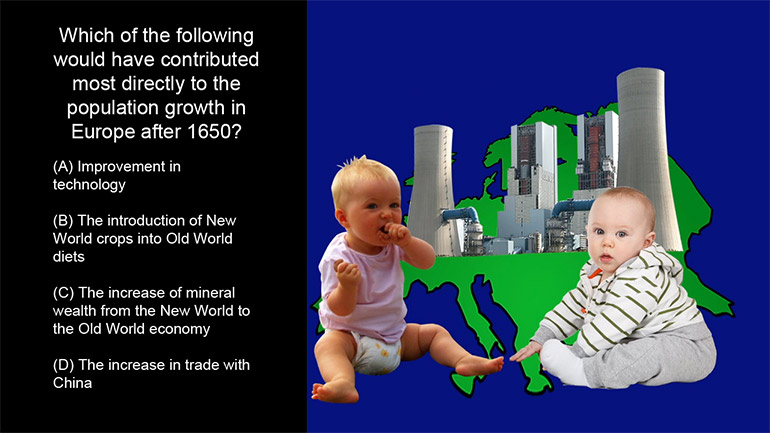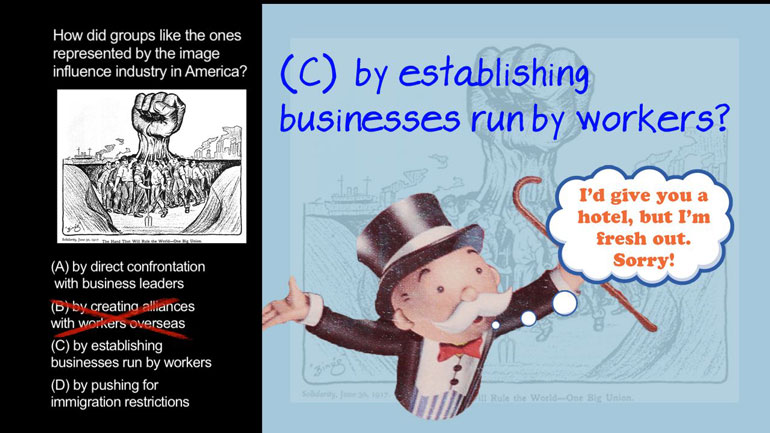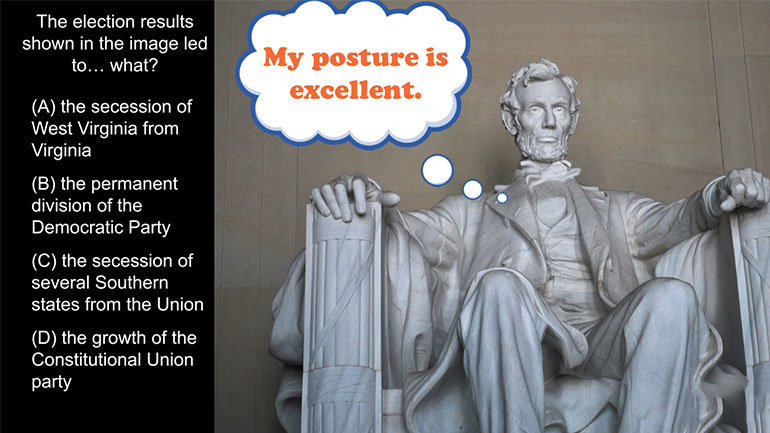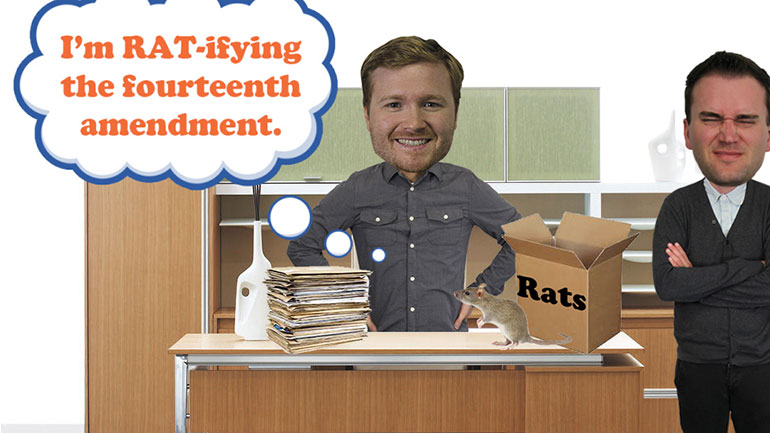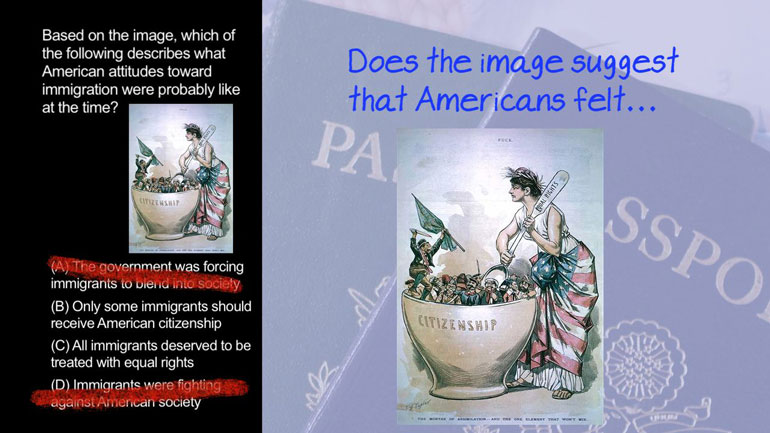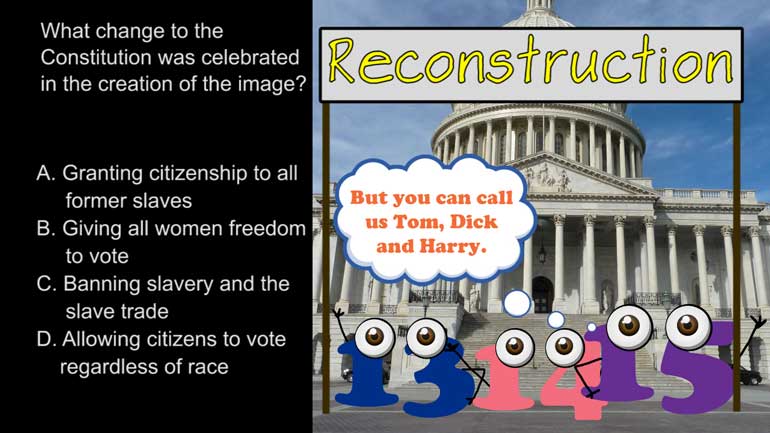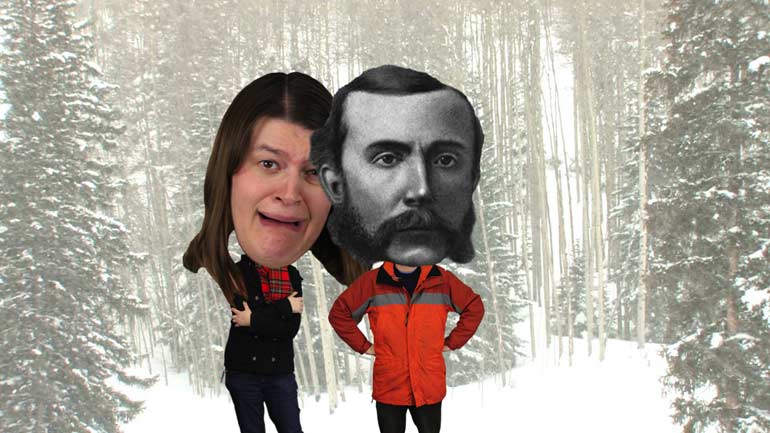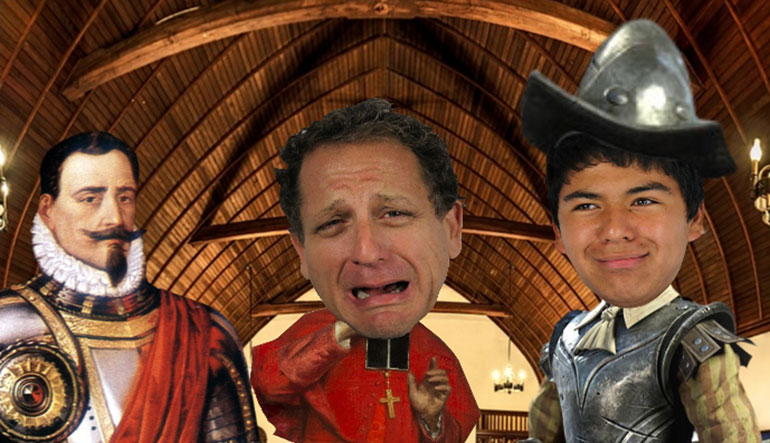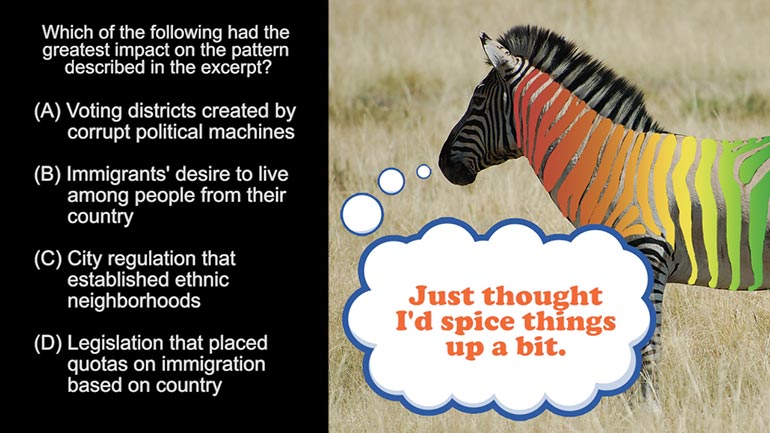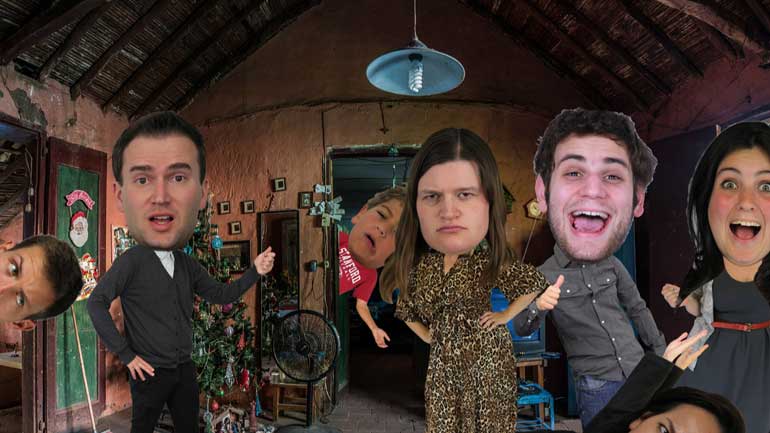ShmoopTube
Where Monty Python meets your 10th grade teacher.
Search Thousands of Shmoop Videos
U.S. History Videos 374 videos
Ever heard of a "living document"? They eat and breathe just like the rest of us! They even walk around on their own two legs. Okay, fine—maybe t...
If the Puritans had gotten their way, religion would play a much larger role in lawmaking these days. Want to know more? Watch the video for all th...
What happened between the creation of the Articles of Confederation and the ratification of the current U.S. Constitution? This video analyzes the...
AP U.S. History Exam 1.18 168 Views
Share It!
Description:
AP U.S. History Exam 1.18. One significant result of the work in the excerpt was...what?
Transcript
- 00:00
[ musical flourish ]
- 00:03
And here's your Shmoop du jour, brought to you by work/life balance,
- 00:08
the most elusive of fine motor skills.
- 00:11
Yeah.
- 00:12
All right, first up, the excerpt.
Full Transcript
- 00:13
[ mumbles ]
- 00:16
[ mumbling continues ]
- 00:19
... 1813... Harriet Robinson.
- 00:22
All right, and now the question:
- 00:23
One significant result of the work in the excerpt was... what?
- 00:27
And here are your potential answers.
- 00:29
[ mumbles ]
- 00:34
Okay.
- 00:35
The development of textile mills sowed all kinds of
- 00:37
societal discontent.
- 00:39
So let's see which answer best describes this new,
- 00:42
mostly-improved weave.
- 00:44
Did this new kind of work create A -
- 00:46
a unified economy throughout all regions of the country?
- 00:50
Well, despite the big technological advancements,
- 00:52
this revolution did little to unify the separate
- 00:54
regions of the U.S.,
- 00:56
since slavery was still a major roadblock on the path
- 00:59
to political harmony.
- 01:01
So that scratches out A and D.
- 01:03
Could the textile mills have created C -
- 01:06
a blurring of the distinction between home and work?
- 01:09
Well, as women entered the workforce, there was actually
- 01:11
more of the distinction between work and home
- 01:14
since many of them for the first time
- 01:16
found employment outside the house.
- 01:18
So it's not C, either.
- 01:19
Which means that a significant result of the advancement
- 01:22
in textile machinery was B - the development of
- 01:24
a distinct American middle class.
- 01:26
Woo-hoo.
- 01:27
With women working in mills,
- 01:29
many families suddenly had two sources of income,
- 01:32
allowing for a third distinct social class to develop.
- 01:35
So B is the right answer.
- 01:37
For many upper class women, though,
- 01:38
the influx of women entering factory jobs
- 01:41
caused an unmendable rip in the fabric
- 01:44
of American society.
- 01:47
[ oh, no ]
Related Videos
Ever heard of a "living document"? They eat and breathe just like the rest of us! They even walk around on their own two legs. Okay, fine—maybe t...
If the Puritans had gotten their way, religion would play a much larger role in lawmaking these days. Want to know more? Watch the video for all th...
What happened between the creation of the Articles of Confederation and the ratification of the current U.S. Constitution? This video analyzes the...
The Modernists thought the world had a lot of problems, and they were intent on fixing them—or at least talking about fixing them. Unfortunately,...
This video explains Federalism and the quest for a fair balance between state and national power. It covers the progression and compromises of Fede...





